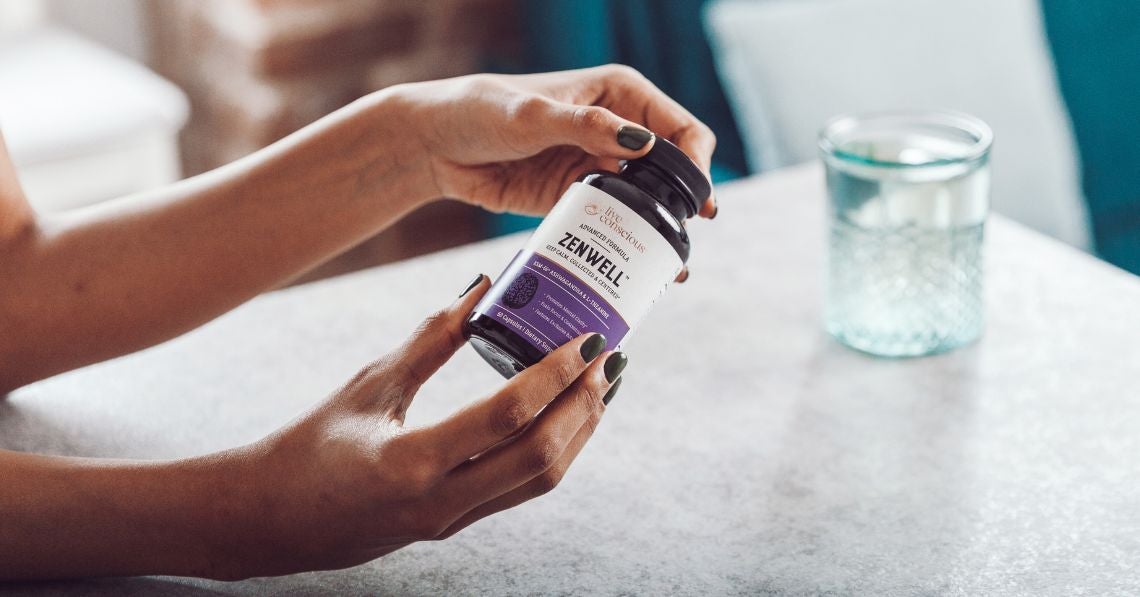October is Emotional Wellness Month, and it’s a great time to check in with your emotional health. When tuned in to our emotional needs, we are able to adapt to life’s changes with greater ease and meet our challenges with emotional stability and mental strength.
When our emotional health is struggling, it can impact every part of our lives. Your physical health, daily mood, and especially your relationships will be affected by your emotional wellness or lack of it.
Luckily, there are tools and practices that help to keep our emotions in balance, and we can continue to improve our emotional wellness throughout our lives.
What Is Emotional Wellness?
Emotional wellness is all about adaptation and learning to find a sense of peace within your emotional landscape. An essential part of emotional health is accepting your emotions, even if they may be uncomfortable.
Maybe we think we shouldn’t ever get angry, so we hold it in until we explode, or maybe some of us were taught as a child that it is unacceptable to cry. Learning new ways to cope with difficult emotions in positive ways and finding methods to express them is at the core of emotional wellness.
Emotional wellness can help you:
♦ feel emotions deeply without judgment
♦ avoid bottling up your feelings
♦ reduce getting “stuck” in certain emotional experiences
♦ have better communication with the people in your life
♦ reduce daily stress associated with difficult emotions
♦ feel a sense of satisfaction and contentment in your life
Sometimes, we inherit unhealthy emotional patterns from our parents and family, or life circumstances can lead us to cope in emotionally negative ways. We may have developed ways of dealing with difficult emotions because we simply had no alternative. There may not have been guidance or healthy examples to show us the way.

Simple Steps to Improve Emotional Wellness
Emotional wellness is an ongoing learning process. It’s a daily habit, not a destination. It’s a practice. Everyone has moments when their emotions get the best of them, and that’s ok. It’s how we teach ourselves to cope with our emotions that makes all the difference.
Daily or weekly practices that help you process and express your emotions will benefit your emotional health profoundly.
Here are a few ideas that can benefit emotional wellness:
♦ Mind-body practices: Try somatic healing, breathwork, meditation, and yoga to keep your mind centered and your emotions balanced. Even 10-20 minutes a day can reduce everyday stress and help you keep your emotions regulated.
♦ Self-expression: A hobby such as journaling, singing, dancing, painting, or drawing gives you a healthy outlet to express your emotions. They can also help you tap into a “flow state” that provides benefits similar to mindfulness and meditation practices.
♦ Daily gratitude practices: Bringing positivity into your life can strengthen the network of healthy emotional pathways in your brain. Change your state of mind with a daily practice to invoke positivity.
♦ Cultivate healthy relationships and emotional connections: Prioritize the relationships in your life and practice sharing your feelings on a regular basis. Studies show that the happiest people are those who cultivate close bonds with their friends, family, and partners, so make an extra effort to connect with those around you.
♦ Embrace anger: Learn to recognize anger as a valuable emotion, just like any other. Many people try to avoid it, but anger can be a powerful force when harnessed and channeled. Sometimes, anger is a sign that something in our life needs to change, and when you seek to understand it, you can use its transformative power. Seek healthy ways to express your anger so it doesn’t overwhelm you or come out in destructive ways, but don’t avoid what it might be trying to tell you.
♦ Find the humor in life: Laughing releases endorphins and other feel-good neurotransmitters that can ease tension and help to lighten the emotional mood.
♦ Counseling: If you feel overwhelmed or stuck in your emotions, find a counselor to help you work through them. People who engage in therapy tend to have better emotional self-regulation skills, which can help them effectively manage stress and navigate challenging situations.
♦ Take a supplement: We love the combo of ashwagandha and L-theanine found in ZenWell® for the way they provide a sense of calm and serenity. Ashwagandha helps to keep cortisol levels in healthy ranges and is a powerful herb for reducing daily stress levels.

Protecting Your Emotional Wellness
Sometimes, it may be necessary to take steps to protect your emotional health from others. Having firm boundaries in place can help you avoid situations that may put your emotional wellness in harm's way.
Ways you can protect your emotional wellness include:
♦ setting clear boundaries
♦ letting go of unhealthy relationships
♦ having difficult conversations when in a calm and clear state of mind
♦ affirming your personal emotional needs
♦ determining if a situation is safe for you to express your emotions
♦ seeking help when necessary
How Online Spaces Impact Emotional Wellness
The possibility to connect with others through the internet is a wonderful gift that technology has given us, but there are drawbacks. Online spaces can spark heated emotions and affect our mental health. It’s easy to get carried away with spending too much time in the digital world, and it can be difficult to detangle our emotions from what we are seeing and experiencing in online spaces.
Set goals for yourself to reduce any negative effects that social media and other online interactions may be having on your emotional health.
♦ Try a screen detox and take a week or two away from any unnecessary online interactions so you can focus on enjoying other parts of your life.
♦ Use an app to monitor how much time you are spending online daily or weekly and make adjustments so your screen time is in balance with your life goals.
♦ Seek in-person connections with the people in your life so you can give and receive emotional support for each other.
♦ Monitor your feelings while you are spending time on social media. How do the online communities you are a part of make you feel? Are you uplifted from the interactions, or would you be better off avoiding certain groups or people?
♦ Use online spaces intentionally. Follow people who inspire you and seek content that brings you joy. Avoid mindless scrolling or comparing yourself to others so your time is well spent.

How Sleep Impacts Emotional Wellness
If you are a parent or have young children in your life, you know that when they miss their nap, they are more likely to have meltdowns, throw fits, and be more emotional in general. While we may grow out of this phase, even as adults, if we are not well rested, it can be more difficult to regulate our emotions.
Science backs up what any parent already knows: we tend to be more emotionally reactive when we lack good quality sleep. By prioritizing rest, self-care, and high-quality sleep, we can better maintain our emotional balance.
Lifestyle and nutrition are big factors when it comes to sleep. Here are a few tips to support emotional health through prioritizing sleep.
♦ Reduce caffeine intake, especially late in the day, so it doesn’t interfere with sleep. Try a mushroom coffee alternative or switch to green tea for sustained energy that won’t prevent a good night’s sleep.
♦ Enjoy herbal tea in the evening to help soothe you into a calm state of mind. We love chamomile, lemon balm, and linden with a touch of honey.
♦ Take a magnesium supplement at night to relax your body and mind. MagWell® has three different kinds of magnesium with the addition of vitamin D and zinc. This formula encourages deep relaxation, quality sleep, and helps to support the immune system.
♦ Try aromatherapy. Pure lavender and other essential oils have positive effects on our nervous system, promoting relaxation and benefitting sleep quality. Even if it doesn’t help you fall asleep, it’s guaranteed to leave your bed smelling wonderfully!

How to Explore and Process Your Emotions
If you have a history of trauma or mental health issues, be sure to work through your emotions with a qualified mental health practitioner. Emotions can be powerful, and some memories and difficult emotions are not always safe to explore without expert assistance.
Remember, it's a practice
The more you work through this process, the easier it will become, and it will give you the opportunity to learn from the situation. Having awareness during an emotional experience will help you navigate future situations.
Identify the emotion
Sometimes, it can be difficult to name an emotion, or they can get mixed up together and make it harder to figure out what you are really feeling. You may feel mostly anger, but the root of it could be because you feel hurt or betrayed. Learning to name your emotion (even if it is several at once) can help you move forward in the situation.
Sit with it
Rather than avoid or repress a difficult emotion, explore it. Let yourself feel it deeply if that feels safe to you. Try to figure out what the source of that emotion is. Often, our emotions are triggered by a past experience, and recognizing that can bring a lot of clarity to the situation, especially when another person is involved.
Accept it
While you may not enjoy how you feel, learn to practice being non-judgmental of your feelings. You may think you aren’t justified in how you feel, but that won’t make it go away. Pushing it away or trying to avoid it may only make it come back stronger. Feelings are not always logical. Even if it doesn’t make sense, learn to find acceptance for the way you feel.
Express it
This could mean expressing your feelings to another person, journaling, blasting a sad song and singing your heart out, painting a picture, or screaming into the night, whatever helps you process that emotion. This helps keep the feeling moving so you don’t get stuck in a certain emotion. While the issues surrounding the emotion may not be resolved right away, healthy expression of emotions is a skill that will benefit your health and relationships.
Rest and recover
Let yourself take a time out if you need it. Heightened emotions can take their toll and leave us feeling drained. Take a bath to calm your body and your mind, have a nap if you feel the need, or even just snuggle up on the couch with a pet or loved one. Give yourself a little break before you jump back into everyday activities to think about what just happened and fully process those feelings.

Seeking Help
Emotional and mental health are just as important as physical health, so empower yourself to seek help when needed. Taking the first step can be hard sometimes, especially if you have absorbed the belief that therapy or seeing a psychologist or psychiatrist is somehow shameful. That is an outdated belief, and it’s time for our society to let go of the stigma surrounding mental health issues. Finding a mental health professional can help you on your path to self-discovery, and they can provide tools for you to better understand your emotions.
Sometimes, underlying physical conditions, such as hormonal changes, can trigger emotional struggles. Seeking the advice of a doctor may help you figure out the root of the issue and assist in guiding you to the right solutions.
Final Thoughts
While everyone experiences emotions in their own way, you don’t have to go it alone! There are a lot of resources and practices out there to help you maintain emotional wellness. At Live Conscious®, we know that a little help goes a long way, so we turn to herbs, vitamins, and minerals like ZenWell® and MagWell® to help keep our emotions steady, our minds calm, and our bodies relaxed.
Remember that while emotions can be uncomfortable, they can also be beautiful and satisfying. Being proactive about your emotional health, just like your physical health, can ensure that you are able to live your life authentically and adapt when challenges come your way.









